Merida's Big Nine family of bikes is relatively vast, with everything from entry-level alloy bikes to World Cup-ready race rigs.
The XT Edition is the fourth tier model and sits in the pricing sweet-spot of £2,500, where you see carbon frames and good quality componentry.
The Big Nine might not be the most futuristic of cross-country hardtails, certainly when it comes to geometry, but time and time again during testing it quietly got on with the job, with decent on-track feel and a thoroughly capable kit list to boot.
Merida is a massive company, based out of Taiwan, with bikes to suit pretty much every genre of riding. It also makes bikes for other brands, and so has plenty of know-how when it comes to constructing both carbon and alloy frames.
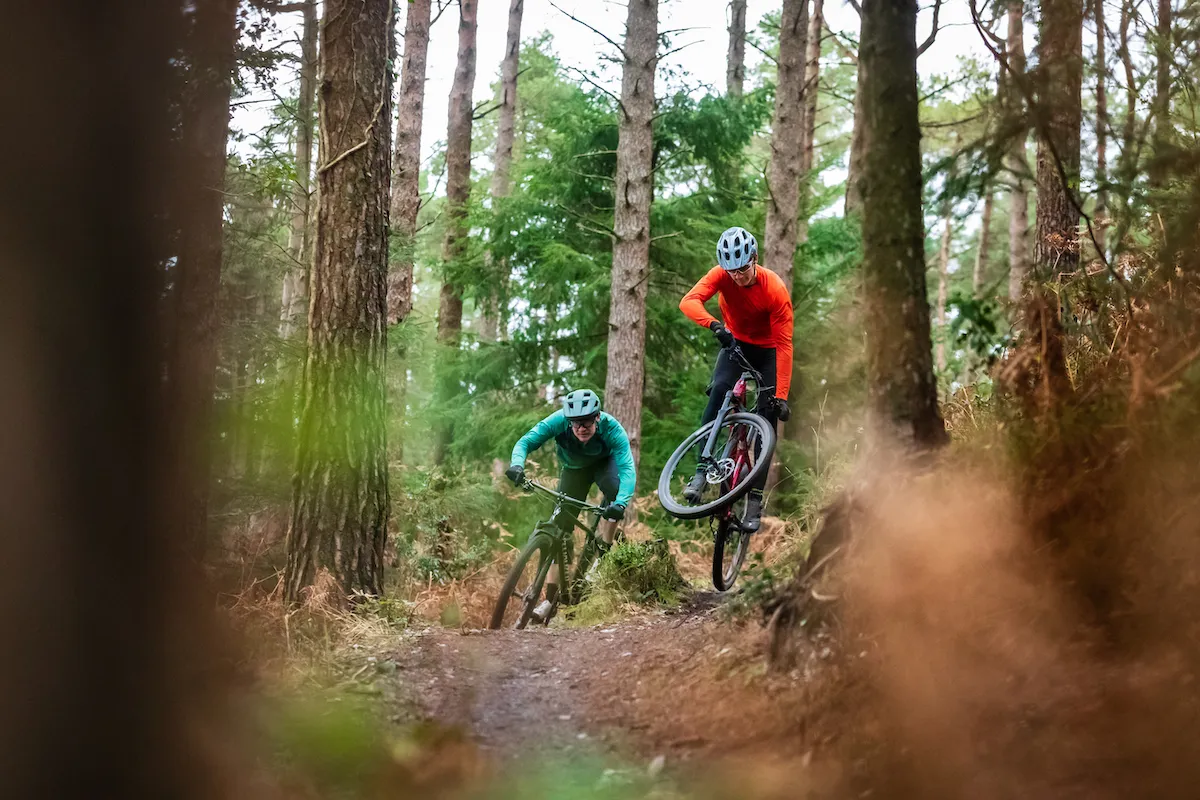
Merida Big Nine XT frame details
The low-slung carbon frame might not have quite the same contemporary geometry figures as the new Specialized Epic HT, for example, but the finish of the frame is spot on.
Internal cable routing, including for a dropper, is rattle free thanks to being kept in tension internally, while the guides can be swapped for Shimano Di2 wiring diameters, and there’s protection for the down tube and chainstays.
Inside the frame is a pair of bottle cage bosses, handy for longer rides.
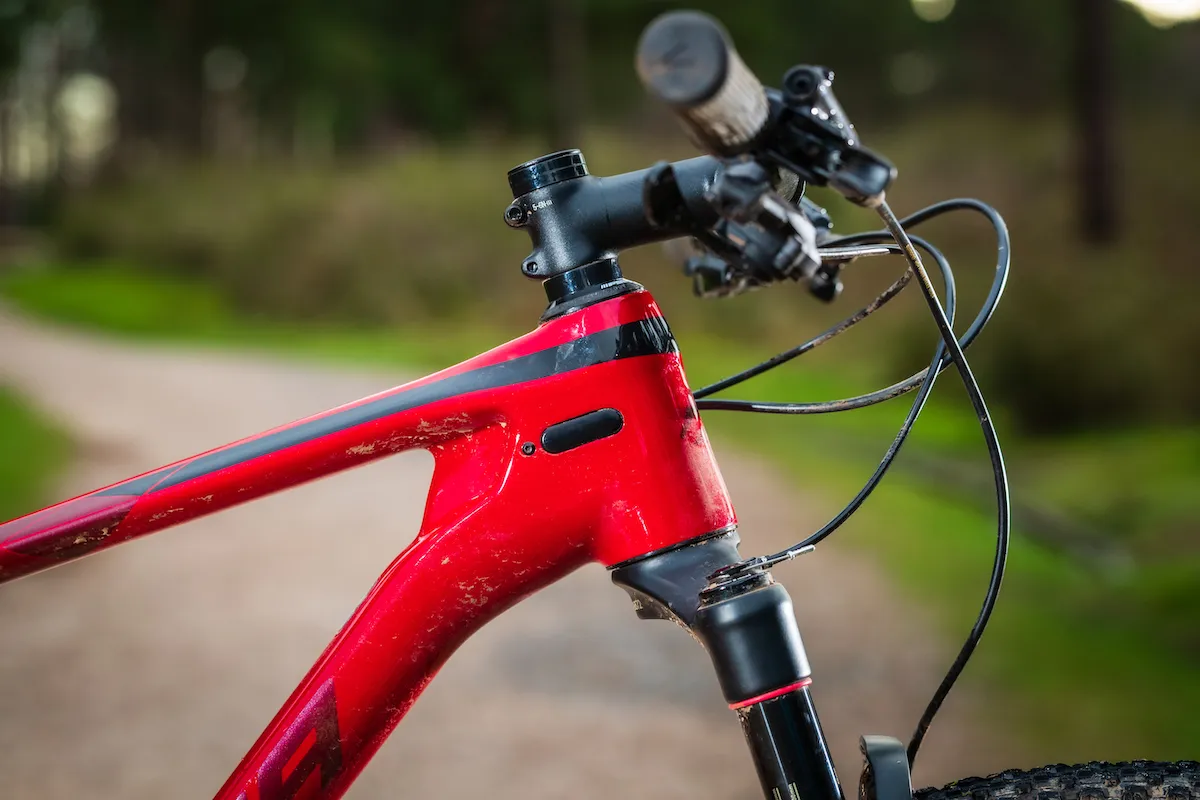
The rear axle has a removable lever, which works on the fork’s axle too. However, you need to pull it out a little to operate because the cowled dropouts foul the lever when it’s fully pushed in. And, once pulled out, it has an oddly wobbly fit. However, once used to it, it caused no issues.
The tubes themselves are nice and voluminous in the front triangle, and lead to a press-fit bottom bracket.
Merida says the tubes have aero-profiling, but I'm not sure quite how much you’ll notice that.
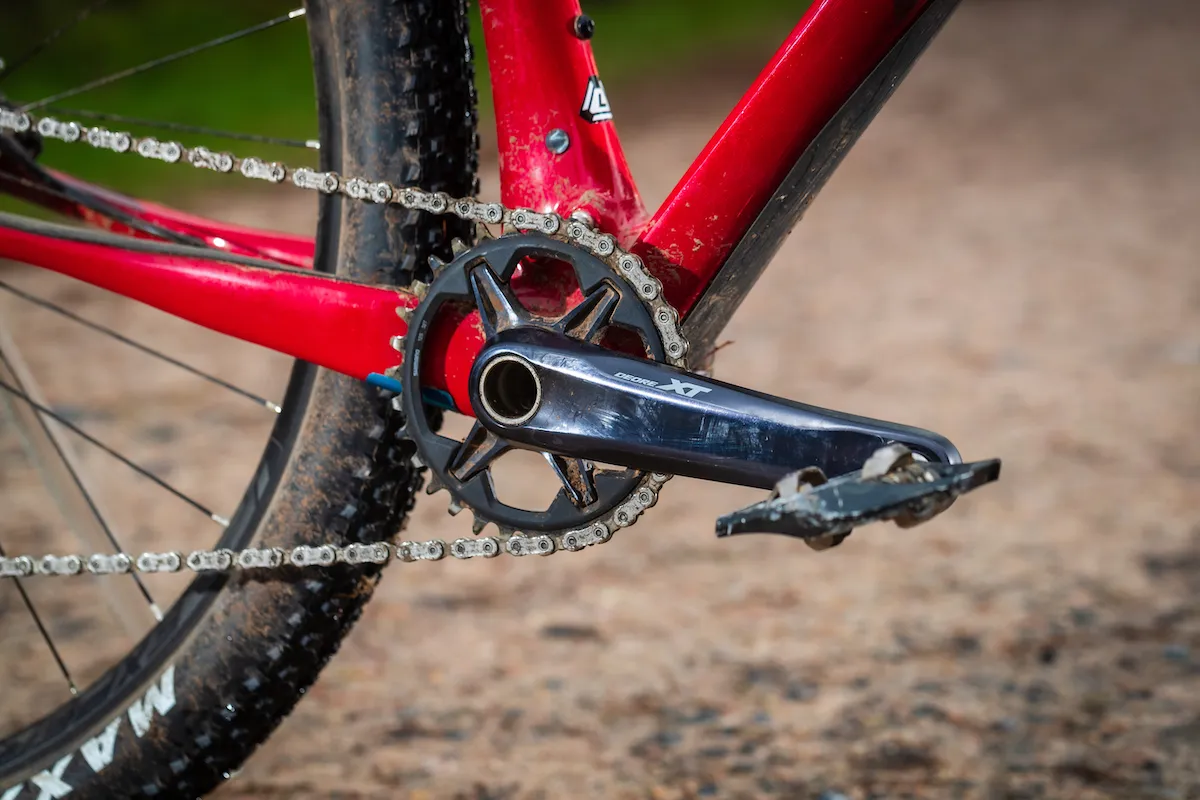
At the back, the chain and seatstays are very slender, thinning towards the rear dropout, purportedly to improve compliance.
Merida Big Nine XT geometry
The Big Nine is traditional in shape, with a short 438mm reach, 73.5-degree seat angle, 70-degree head angle and 433mm chainstays.
The head tube is short enough to get the front-end nice and slammed, should you wish to get an aggressive position over the front end.
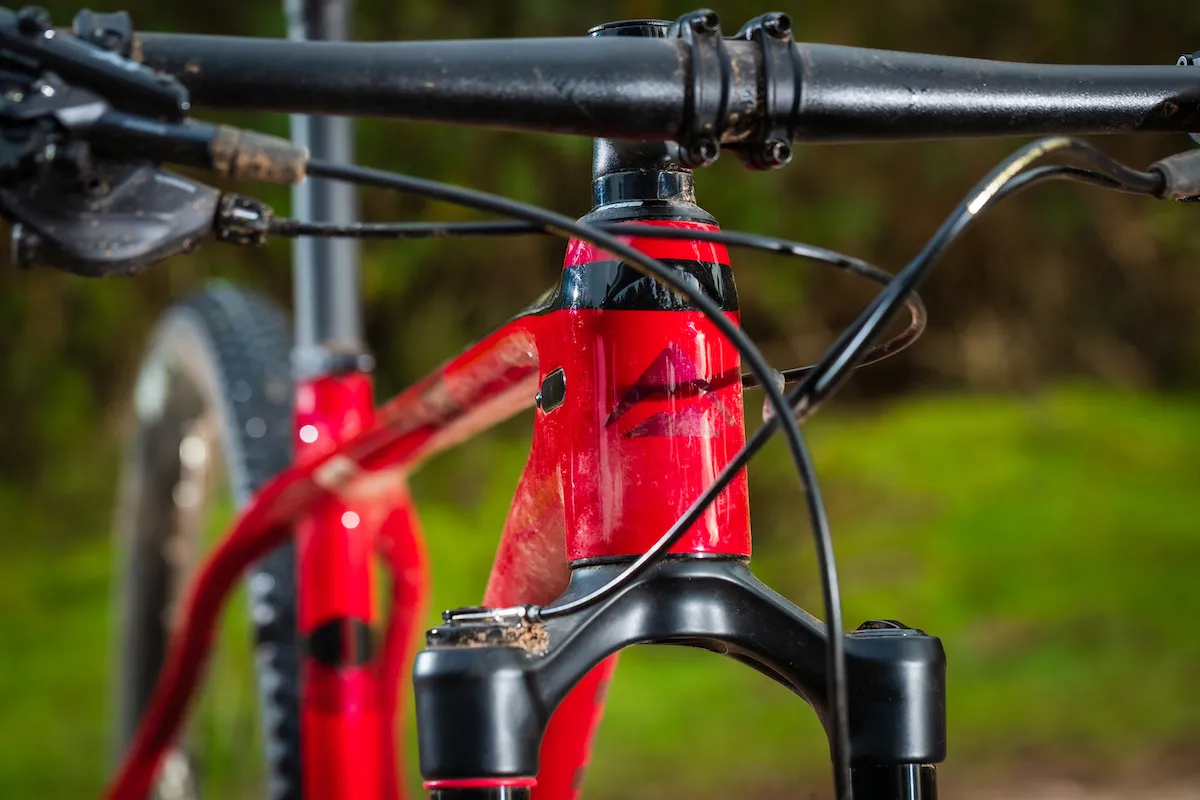
With a 483mm seat tube (large) I might have just been able to 'size up' at 182cm tall to an XL frame, to get a 454mm reach, but I'd have lost around 50mm of seatpost extension (which aids comfort) and would lose around 40mm of standover.
- Sizes: S, M, L*, XL, XXL (* size tested)
- Seat tube length: 483mm
- Seat angle: 73.5 degrees
- Head angle: 70 degrees
- Top tube (effective): 625mm
- Reach: 438mm
- Chainstay: 433mm
- Wheelbase: 1,121mm
- Bottom bracket height: 305mm
- Standover: 778mm
- Stack: 631mm
- Head tube length: 110mm
Merida Big Nine XT specifications
A mid-spec RockShox Reba RL with 100mm travel props up the front end and comes fitted with a bar-mount lockout lever, which closes or opens the Motion Control damper.
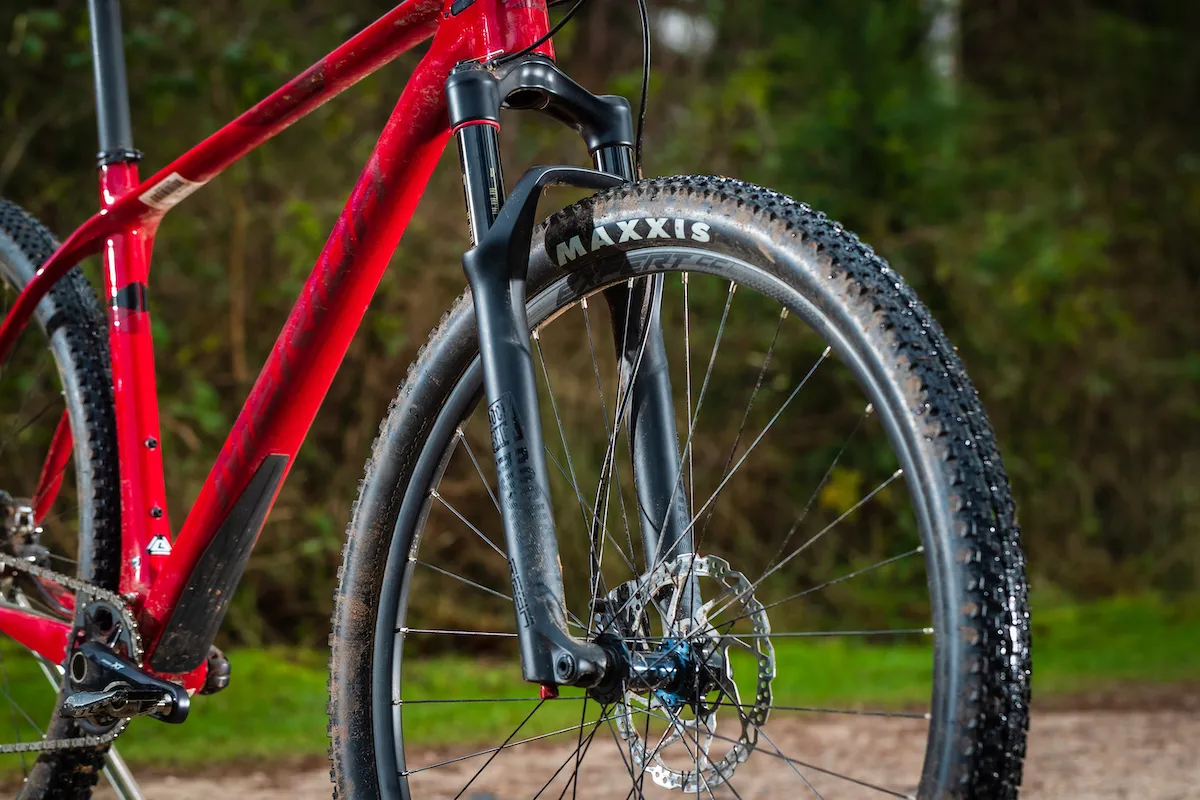
The bike benefits from a slick-shifting 12-speed Shimano XT drivetrain. You also get two-pot XT brakes with a matchmaker style clamp for a clean Merida-branded cockpit.
Merida also provides the rims, which are built around Shimano SLX hubs, and are wrapped in a pair of dual-compound Maxxis 2.2in Ikon tyres with a low-profile tread.
There are no fancy compounds here, but their width is reasonable and overall wheel weight is competitive.
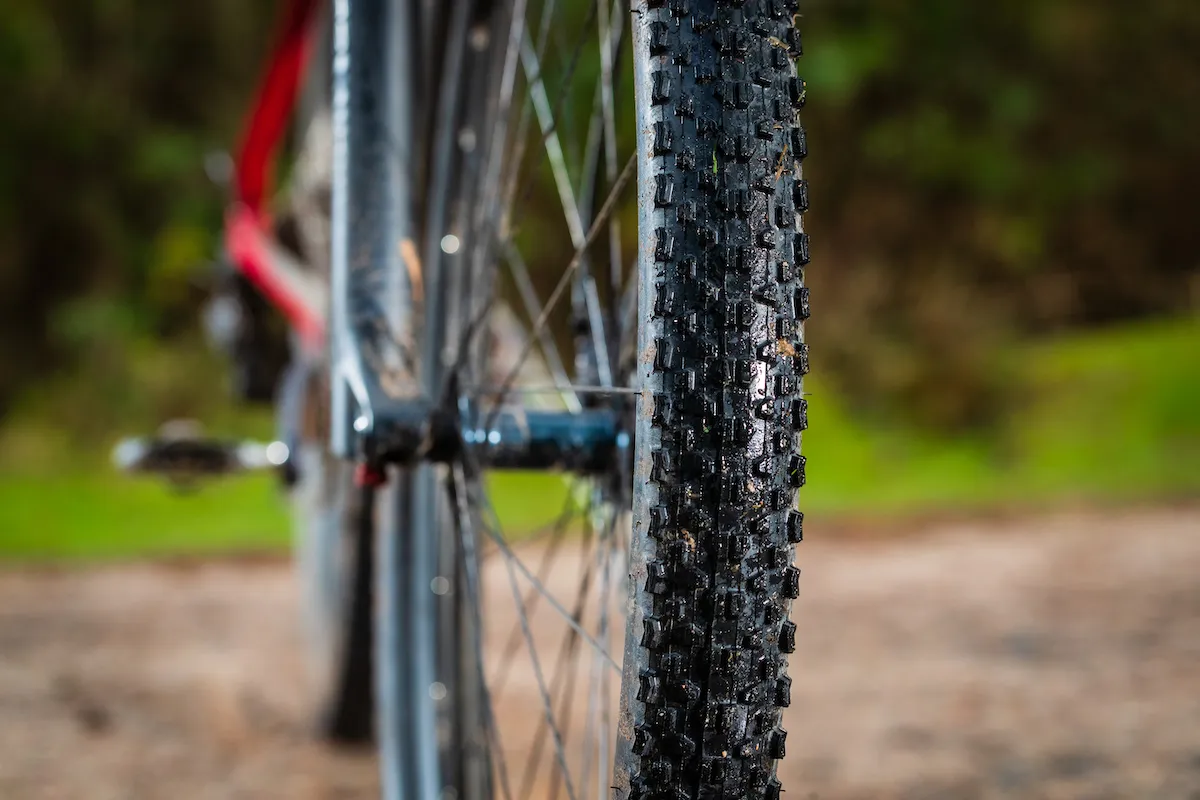
Merida Big Nine XT ride impressions
On paper, perhaps the Merida shouldn’t be quite as good as it is – certainly if you look at the geometry figures. However, as an all-round package, the Merida comes out punching.
I tested this bike as part of a £2,000 to 2,500 carbon hardtail test (before the lockdown regulations), which also featured a Specialized Epic Hardtail (£2,250), Cube Reaction C:62 SL (£2,299) and Canyon Exceed CF SL 7.0 (£2,532) – reviews coming soon.
The bikes were tested on our local XC loops, from short sprints through the woods on both natural and purpose-built trails. I also took them on longer, extended rides to get a better 'feel' for their comfort.
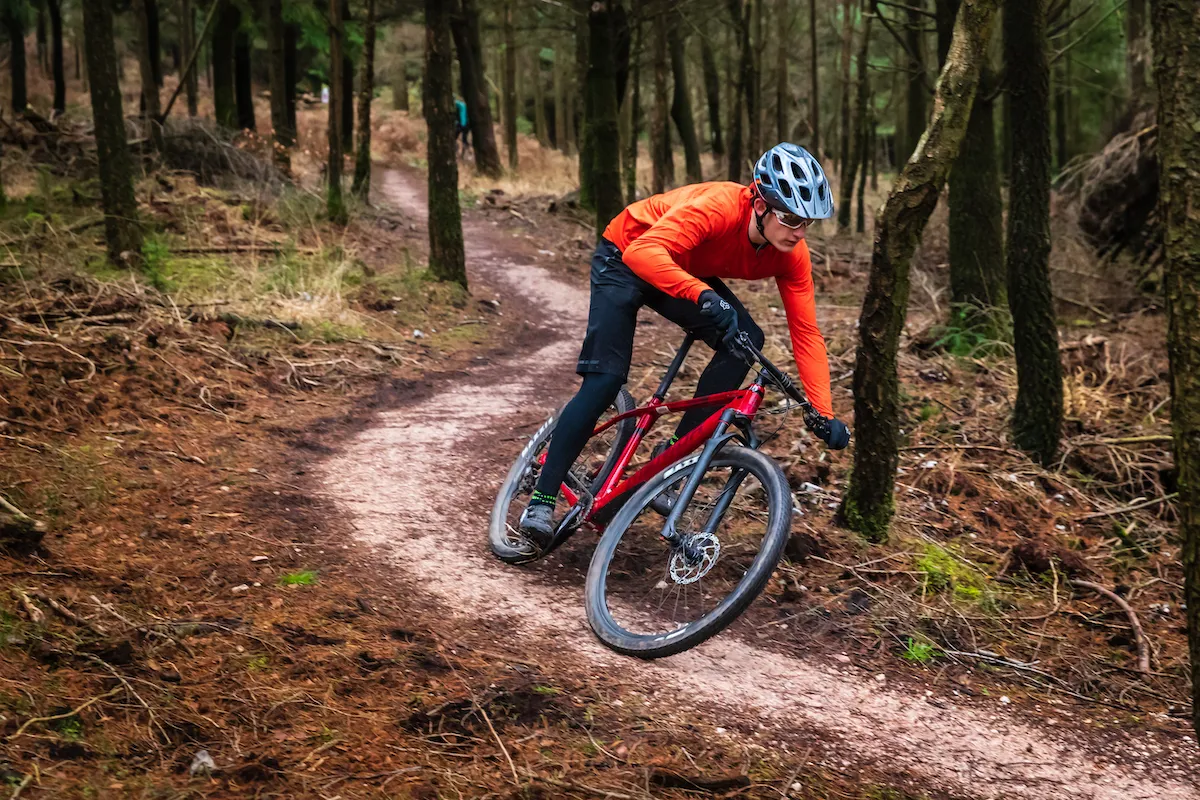
Merida Big Nine XT climbing performance
Climbs on the Merida passed quickly, with the frame remaining steadfast under power. The front triangle is stiff enough for you to haul on the bars, with the BB92 bottom bracket shell offering plenty of beef lower down in the frame.
Wider bars would have been appreciated when really straining, though, because they would have given more leverage to pull the bike up into the pedal stroke.
The Ikon tyres can slip and slide on greasier surfaces, but as I also found when descending, I was fairly impressed with how they attacked more technical ascents, refusing to ping or slip when pushed into steppy climbs – I think the slight give in the rear triangle helps keep this pingyness to a minimum.
With their low-profile tread, the tyres also roll nicely on smoother surfaces, stopping them feeling too sluggish or draggy.
With the front end relatively short, it was easy to get weight planted over the front wheel on steep sections, keeping the front wheel in check, while pulling back on the handlebars to eke out as much traction from the rear wheel as possible.
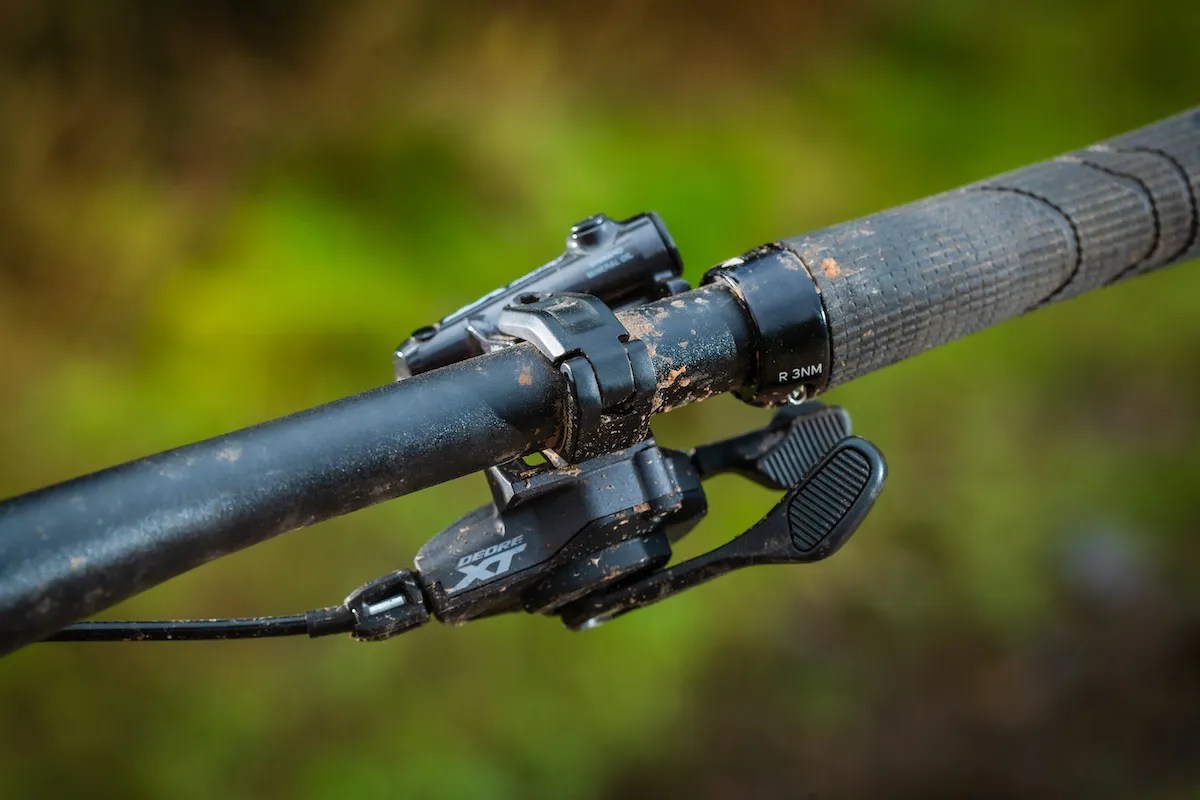
Shifting across the XT gears is almost as good as it gets on a mountain bike. Shimano has the steps between the gear ratios sorted, for a smooth change in cadence as you shift gears.
It's also got the profiling of the cassette nigh-on perfect. Under power, up or down the cassette the chain jumps smoothly from sprocket to sprocket, giving you reliable, dependable shifting regardless of conditions.
Having a remote lockout is handy on a bike like this. The RockShox lever sits nicely on the bar and provides a quick and easy way to add climbing efficiency on smooth ascents at the push of a button.
Merida Big Nine XT descending performance
The handling is quick and accurate, making short work of tighter, twistier tracks, where it’s fairly short stature and steeper front-end make hooking it round obstacles an easy game.
Where tracks got rowdier, the Merida doesn't shine as well as more contemporary-shaped bikes, such as the super-composed Specialized, however what impressed was the Big Nine’s smooth, planted feel over choppier trails.
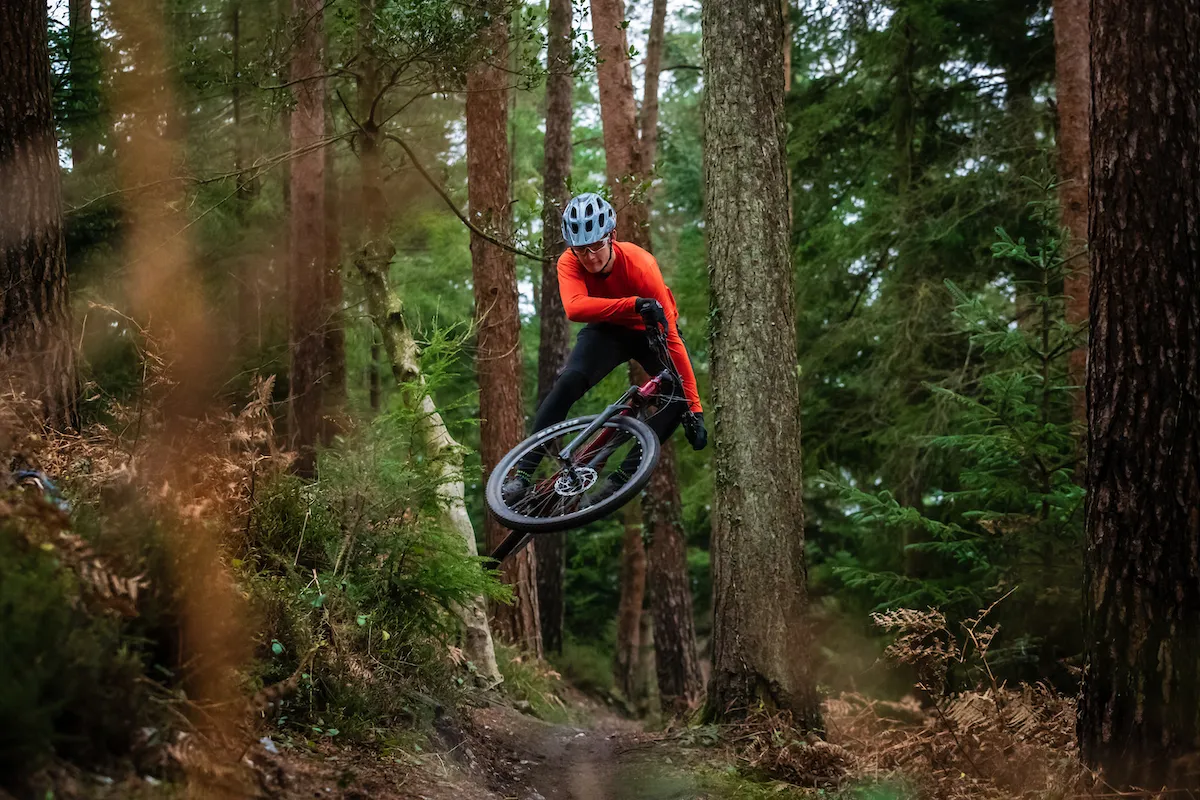
Rather than being pinged from side to side, the fork and back end, via the tyres, seemed to mold better over square and rounded edges, so I didn’t feel quite as nervous hitting more technical lines fast.
This is, of course, with some recognition of the tyres' limitations. The shallow tread doesn't have the bite of chunkier tyres, and the dual-compound rubber doesn't quite have the hold on wet rocks and roots that a softer compound tyre might.
When it came to sprints, despite fast rolling tyres, the Merida doesn't have the kickiest ride, however it's a relatively subjective assertion, and if that’s the cost of descending with a little more confidence, I’ll take it.
There was little to complain about componentry wise either. The Reba sits between the Judy and SID, both in RockShox’ range and in feel – it’s good, but not quite as plush as the SID. Any 32mm stanchioned fork will have some twist and twang when the going gets steep or heavily loaded.
The drivetrain, brakes, wheels and tyres also just worked, neither shining nor causing any issues to speak of.
Merida Big Nine XT bottom line
The Big Nine might not be the shoutiest of bikes – it doesn’t have the flashy kit of the Canyon, nor the contemporary shape of the Specialized – but what it does well is get on with the job at hand.
It’ll get up the hills fast and get you back down fairly quick too, while the components fitted should last a season or two of racing without complaining too much either.
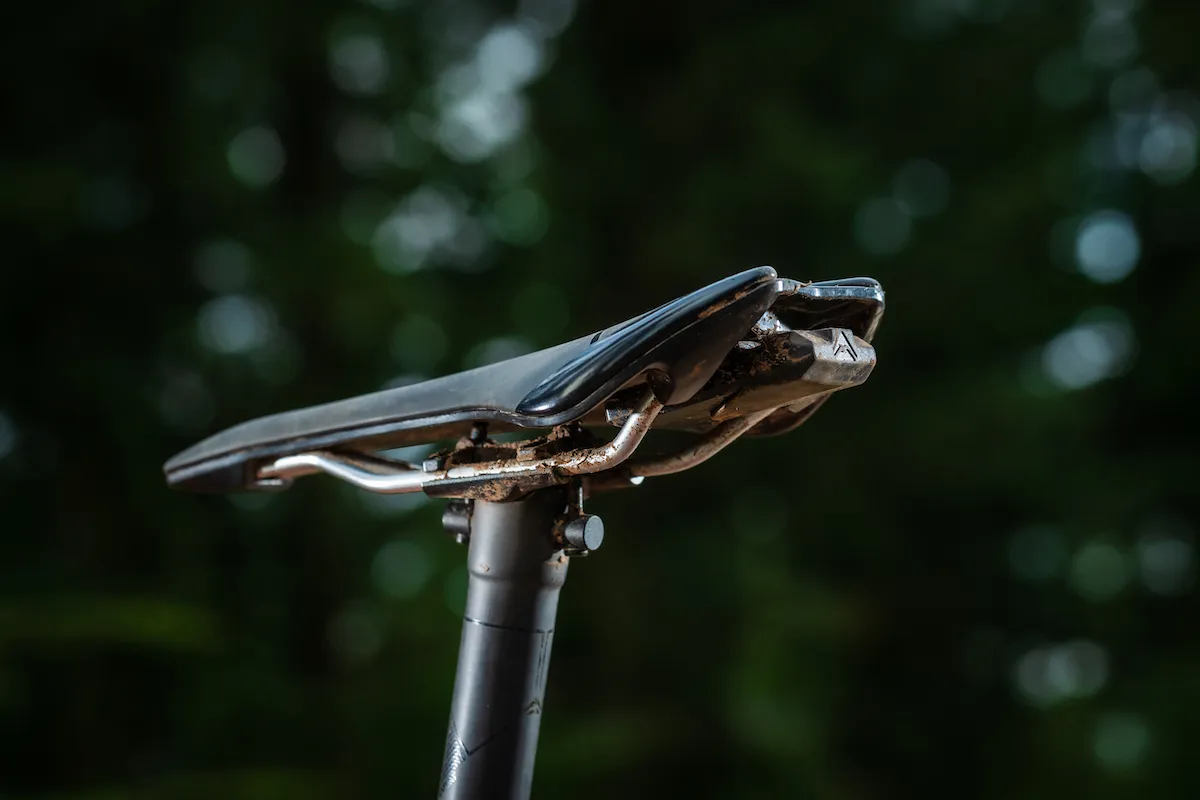
Overall, though, it was the Merida that was least compromised. Yes, I’d like it a touch longer and slacker, but it was barely held back by that.
The equipment bolted to the frame performed really well and its composure, thanks to a more forgiving back-end, meant it was often first choice when I wanted to crank out a few fast miles on a sunny winter’s morning.
How we tested
The bike was tested as part of a four bike carbon hardtail test with a price-point of £2,000 to 2,500.
Testing took place before the Covid-19 lockdown regulations on local cross-country loops, and included short sprints through the woods on natural and purpose-built trails. Comfort was also tested on longer rides.
Bikes also on test:
- Specialized Epic Hardtail
- Cube Reaction C:62 SL
- Canyon Exceed CF SL 7.0
Product
| Brand | Merida |
| Price | A$3699.00, £2500.00 |
| Weight | 10.85kg |
Features
| Fork | RockShox Reba RL |
| Stem | Merida Expert CC, 90mm |
| Chain | Shimano XT |
| Frame | CF3 carbon fibre |
| Tyres | Maxxis Ikon 29x2.2in |
| Brakes | Shimano XT 180/160mm |
| Cranks | Shimano XT 32t |
| Saddle | Merida Expert CC |
| Wheels | Merida Expert CC 23mm rims, Shimano SLX hubs |
| Headset | FSA NO.55E |
| Shifter | Shimano XT |
| Cassette | Shimano XT |
| Seatpost | Merida Expert CC |
| Grips/tape | Merida Expert EC |
| Handlebar | Merida Expert CC, 720mm |
| Bottom bracket | Shimano BB71 Press Fit |
| Available sizes | S, M, L*, XL, XXL |
| Rear derailleur | Shimano XT |
